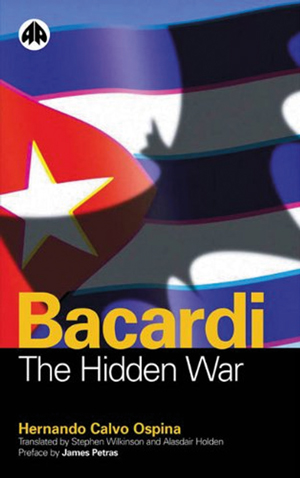Andreas Sten-Ziemons | Alima Hotakie
Noa-Lynn van Leuven is the first transgender person to compete at the World Darts Championship. This has seen van Leuven become the subject of social-media abuse, but the Dutch native is not without supporters.
Which sporting competitions transgender athletes should be allowed to compete in has long been the subject of debate. What conditions are fair, and where should a line be drawn?
Such questions were hotly debated in the run-up to the World Darts Championship, where Dutch player Noa-Lynn van Leuven became the first transgender player to take to the world's biggest darts stage — at Alexandra Palace in North London, the legendary Ally Pally.
On the way to the world's most prestigious darts tournament, the 28-year-old faced many hurdles and sometimes massive resistance — in addition to a lot of support and enthusiasm.

Van Leuven was born a man. She first described herself as transgender at the age of 16 and began her transition from male to female, which she completed in 2022. Van Leuven has been competing in international darts tournaments since 2021.
Van Leuven qualified for the World Championship due to strong performances in the Women's Series and it is precisely this that is now sparking criticism, some of which has taken the form of abuse on social media. There have even been death threats.
'Is somebody watching me?'
"Someone wrote to me: If you follow my girl into the ladies' room, I will kill you," van Leuven told the Sport1 podcast "Checkout."
"Messages like that made me ask myself at the airport the other day: Okay, is someone maybe watching me? Could this person be somewhere nearby? That's terrible."

It hasn't stopped van Leuven, but it is troubling.
"I've had panic attacks, and my depression has worsened — all because of social media, and that's so wrong," the player told Focus.de.
"Of course, sometimes I think: Okay, is it all worth it? Especially after my teammates withdrew from the Dutch team, I received so many hate messages on social media."
Criticism and boycotts from competitors
In fact, two teammates, Anca Zijlstra and Aileen de Graaf, resigned from the Dutch national team in protest.
"I respect their stance of not wanting to play in a team with a trans woman," van Leuven said. "But the issue became so huge, the media made it even bigger."
Other competitors also felt that van Leuven's participation robbed them of their chance to take part in the World Championship.
Deta Hedman, who has competed at the World Championship in the past, declined to face van Leuven in a match.
"People can be whoever they want in life, but I don't think biologically born men should compete in women's sport," she wrote on X, formerly known as Twitter.

Biological arguments
The Englishwoman explained her boycott in more detail to DW.
"Absolutely no issues with Noa playing at Ally Pally, Noa was brilliant in winning a Challenge Tour earlier in the season and is an awesome player," she said.
"My only problem is Noa qualified through the Ladies Series, and it's my belief that transitioned players should not be allowed in the women's section of our sport."
Hedman justifies her stance with biological arguments.
"There (have) been studies on skeletal differences that point to advantages for male born players," she said.
"Also, men have bigger heart and lungs, this helps in reoxygenating blood cells which helps recover quicker than women from fatigue!"
Endurance plays an important role in major tournaments, as players sometimes spend as many as 10 hours at the venue.
According to Hedman, however, the most serious complaints are those that only people born as biological females suffer from.
"Now imagine being on your menstrual cycle or suffering from women's only symptoms of peri menopause, menopause, fibroids, endometriosis etc. with the accompanying symptoms that include headaches, brainfog, irritability, stomach cramps, extreme sweats etc," she said.
"That affects your standard in a precision sport and a transgender will never suffer from any of these."
PDC, world champion back van Leuwen's participation
Professional Darts Confederation ( PDC), organizers of the World Championship, do not take such considerations into account. According to PDC guidelines, van Leuven's participation was fine, as her transition was completed in 2022.

"The scum that has been hurledat Noa-Lynn is completely unacceptable," said Matt Porter, CEO of the PDC, as van Leuven was increasingly being subjected to public hatred. He added that the PDC had a duty to ensure "that she is mentally well."
Many male colleagues have also expressed support for van Leuven.
"She can play damn good darts. Let her!" said Dutch former world champion Michael van Gerwen.
"She is in the competition. She has not broken any rules. She is doing what she is allowed to do," defending World champion Luke Humphries told the English daily "The Independent."
"It would be nice if people let her get on with it and play. But yeah, I wish her all the best. Hopefully she gets a win and it's good for her."
For all the abuse directed at van Leuven, her participation amounted to a windfall for the World Darts Championship. Her becoming the first trans woman at Ally Pally brought a wealth of added attention to an event that is already booming. Just like the debut of the then-16-year-old teenager Luke Littler last year or Fallon Sherrock's first win by a woman in 2019.
This article was originally published in German.

Andreas Sten-Ziemons Editor and reporter

Alima Hotakie DW's Alim




 Bacardi: The Hidden War
Bacardi: The Hidden War















